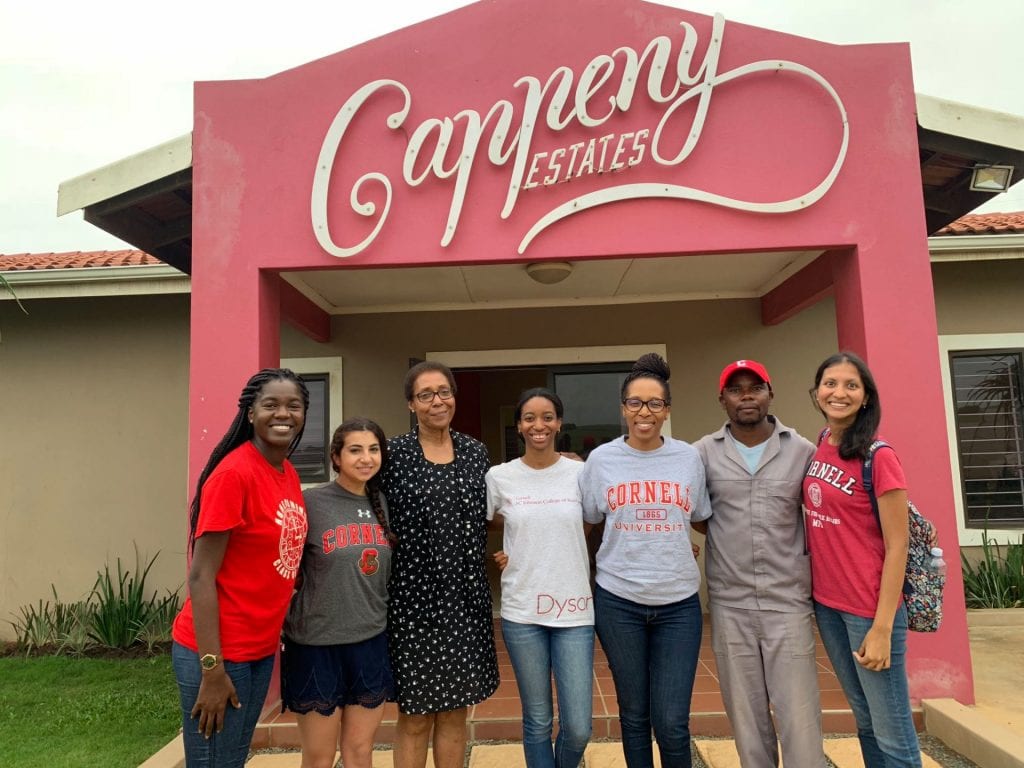South Africa: Cappeny Estates
 Overall Goal
Overall Goal
The SMART team will learn from and partner with Cappeny Estates, one of the first minority-owned strawberry farms in South Africa, to capture their history, business story and how they can be trailblazers in this unique space.
Company/Business and Location
Cappeny Estates is a closed corporation located in Ballito (Northern Durban), South Africa
Company Profile
Nestled between the rolling hills of iLembe and the Indian Ocean, a visit to Cappeny Estates is exciting as it is inspiring. Cappeny is farming strawberries of the highest quality by employing breakthrough technology in the field of hydroponic production methods, facilitating continuous yields right throughout the year. The farm started its production in 2013. It is a Global Gap certified farm which grows varieties from the US (Florida and California), Spain and Israel. The harvesting of fruit is for delivery to all major South African retailers.
Cappeny Estates exemplifies the entrepreneurial spirit by providing opportunities, training and resources that enable people and communities to raise their standard of living. They currently offer internships for unemployed graduates to gain practical work experience aligned with their field of studies.
Proposed Team Tasks
Cappeny Estates has over doubled its production area and revenue since inception. The demand for strawberries, both locally and globally, is high yet, there are very few strawberry growers. The company has requested the SMART team to:
1. Understand and document their value chain—‘from farm to consumer’—as part of a broader story; and
2. Assist in developing effective market growth strategies to scale existing products/services while tapping new ones.
Skill Requirements
The skills and background that would be beneficial for this project include:
- Good understanding of business (e.g. market analysis, value chains, entrepreneurship, administration, etc) and development frameworks;
- Research, analytical and writing skills (e.g. publishable case study); and
- Background knowledge in fields such as food science, marketing, entrepreneurship, horticulture, soil science and nutrition.
Suggested Timeline
Tentative dates are January 6-17, 2019
Team Leader
Dr. Josephine Allen, Prof. Emerita —College of Human Ecology
Technical Project Advisor: Dr. Anu Rangarajan, Director, Cornell Small Farm Program, Horticulture Section, School of Integrative Plant Science
Additional Information
Website: http://www.cappenycom/
